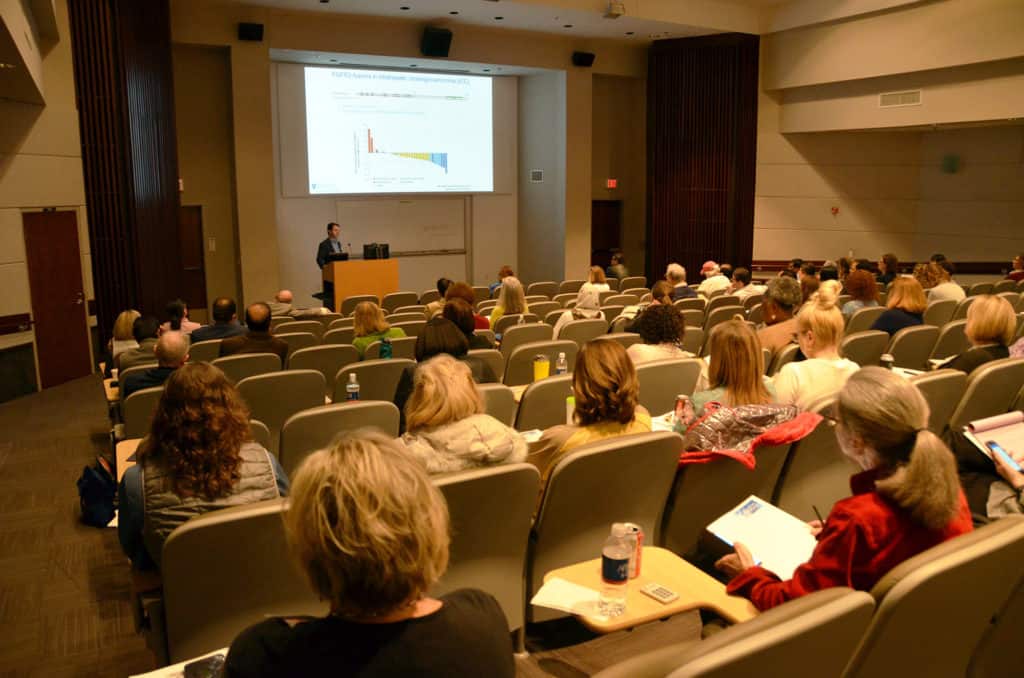Rasco Symposium Offers Insights on GI Cancer Therapy, Research
| About 125 health care professionals gathered March 8 at the UAMS Winthrop P. Rockefeller Cancer Institute to learn about the latest advances in gastrointestinal (GI) cancer diagnosis and therapy.
The 22nd Annual Charles William Rasco, III Symposium on Colorectal Cancer and GI Malignancies offered a full day of educational presentations designed for all spectrum of specialists caring for GI cancer patients. Participants included physicians, nurses, pharmacists, social workers, researchers and others working in the field.
A. Mazin Safar, M.D., associate professor in the Divisions of Medical Oncology and Hematology in the UAMS College of Medicine, served as course director.
“Colorectal and other gastrointestinal cancers affect far too many Arkansans, and we are committed to providing them with the most advanced therapies available. Educational events such as the Rasco Symposium are important vehicles for us to exchange ideas with our colleagues in other disciplines and review some of the latest research and treatment options so we can best serve our patients’ needs now and in the future,” said Safar.
A keynote address titled “Clinical Applications of Liquid Biopsy in the Management of GI Cancers” was presented by Ryan B. Corcoran, M.D., Ph.D., director of the Gastrointestinal Cancer Center Program and the scientific director of the Termeer Center for Targeted Therapy at the Massachusetts General Hospital Cancer Center. Corcoran also is an assistant professor of medicine at Harvard Medical School.
Additional topics covered included noninvasive screening for colorectal cancer, the role of neoadjuvant radiation in GI cancers, nutritional support for GI cancer patients and colostomy management, among others.
The Rasco Symposium honors the memory of Charles William Rasco III, who died from colon cancer in 1994.
Participants also had the opportunity to visit booths representing a number of programs and services related to research and treatment of gastrointestinal cancers.

